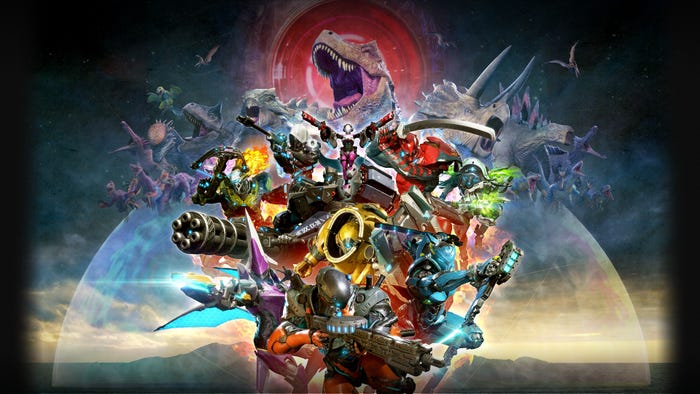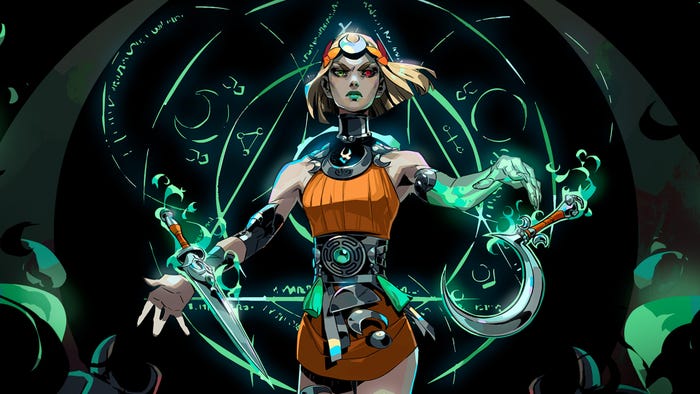Work for hire horror: How keeping calm can lead to success
Lessons in how not burning bridges and putting up with publisher BS can lead to lucrative development contracts -- if you can keep your wits about you and your head above water.

When working with publishers, don't burn bridges -- no matter how bad it gets. That's according to Tamas Kozak of Invictus Games, who today delivered a talk at the Central European Games Conference.
"Sometimes publishers don't stick to the rules they've set, they don't do the marketing they said they'd do, they want you to implement a feature you don't want to put in, and you might want to tell them it's over," he says.
He shared one particularly bad example: "When we worked with some Korean, Japanese, Chinese, Russian, and American partners for an MMO racing game, everyone had a different agreement with us for their own territories," he began. "But the American partner opened the game globally, breaking the contract. And it was a loss of face for us with the others, and we lost money with them, too."
"We had to fight a lot with this American partner," he says, "and had to send them a legal threat. It was a big, big hassle. And you can imagine the atmosphere in the communication. The producer visited us, and we decided to treat him really nicely. Hungary is famous for hot springs, and he really enjoyed it.
"My business partner said, 'Why did you do this? To hell with him! Why were you nice to him?' But we treated him nicely, and he contacted me three months later, said he would like to move to Europe and maybe work for us. He didn't wind up doing that, but we made a good friendship with him.
"Two years later, he contacted us as the head of Bandai Namco games mobile division, and we wound up making the big Ridge Racer Slipstream title for mobile. Why? Because I didn't burn the bridge with this guy, even though they deserved it."
Working with a publisher: "Honestly, it was a nightmare"
How has it been for them to work with publishers as indie developers? "Honestly, it was a nightmare," he said. "They're extremely slow, and when you're an indie developer, you get used to quick iteration, fast decision-making. You set up a meeting internally, talk to some people, and that's it."
But with publishers, changing anything is a labyrinth of approvals, "especially with a company whose head office is in Japan, where decision-making is notoriously slow," he says. It was one and a half years between the first playable and the contract, for example. "And in the meantime we had to reserve the team, we had to have meetings, and lots of talk, and we remained interested and enthusiastic, but it was a really long story to achieve that contract," he said.
He also noted that publishers often treat casual conversations about projects as binding plans. When you speak to them about funding, and they say "can you give me an estimate," you feel they're interested -- but there is no design document yet, since it's still just talk. But then they treat the resulting estimate as a deadline, before the scope has even been decided, and they may just decide to add a lot more than you'd planned.
"Based on our calculations, at the end of development, we realized the normal dev cost should've been 2.5 times as much," he says of working with publishers. "Lots of times we realized publishers didn't send proper IDs or keys, or things that aren't usable on their end, which led to multiplied development cost and time."
"There are huge advantages too"
"But there are huge advantages too," he said. Invictus wound up doing six projects with Namco. "It was great to work with them," he said. "They published four of our own games, and two work for hire games." By way of example, he cited one large benefit: "They can have personal meetings with Apple and Google. So our publishers took the games to Apple in Cupertino. What a big advantage that is, compared to indie devs who just release a game and hope for the best."
Another huge advantage is the press releases. They're very effective, in his experience. "When they send out a press release, it's really covered by the media sites. When an indie sends one out, it's covered by maybe 5 percent of the sites."
"Obviously there are normal reasons to work with publishers," he concluded: "the financial reasons."
Read more about:
2015About the Author(s)
You May Also Like













